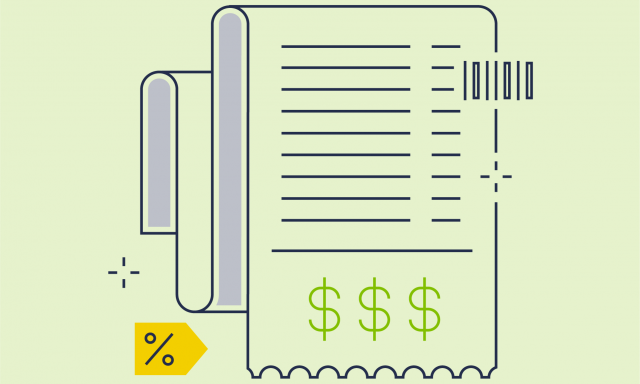

 Article
Article

 While the long-term economic consequences of the pandemic are unclear, we do know that many small businesses are struggling, particularly vulnerable because of how they’re financed — especially minority-owned small businesses, which are more likely to be denied loans and pay higher interest rates. How to boost their chances? Shorter pay terms.
While the long-term economic consequences of the pandemic are unclear, we do know that many small businesses are struggling, particularly vulnerable because of how they’re financed — especially minority-owned small businesses, which are more likely to be denied loans and pay higher interest rates. How to boost their chances? Shorter pay terms.

Insights from
By now it is clear that the death toll from COVID-19 is staggering. Less clear are the long-term economic consequences of the pandemic. We do know that “the scope and speed of this downturn are without modern precedent,” according to Jerome Powell, chair of the Federal Reserve, and the “recovery may take some time to gather momentum.”
Even as many large companies are struggling to remain solvent, this is hitting small businesses particularly hard. The number of working small businesses dropped by 22 percent across the country between February and April. It is even worse for black-owned small businesses, which have dropped by 40 percent in the same time frame. Before the pandemic, 47 percent of the private workforce in the Commonwealth of Virginia was employed by small businesses (roughly 1.5 million people), and in the 5th Congressional District, the area around Charlottesville, the number was 58 percent.
Small businesses are particularly vulnerable in these times because of how their businesses are financed. When small businesses first set up shop, five out of six entrepreneurs (83 percent) do not use bank loans or venture capital. Instead they must rely on personal savings, loans from friends and family, and credit cards. This is especially true for minority-owned small businesses, which are more likely to be denied loans and have to pay higher interest rates on loans they do get, compared to similarly qualified non-minority-owned businesses. As a result, when small businesses struggle, it often directly impacts the personal savings of the business owner and their friends and family network.
The initial stages of a business are not the only times when owners struggle to access capital. A study of 184 small businesses in Virginia, by a research team headed by Darden faculty Morela Hernandez and Jarred Harris, found that the lack of steady cash flow limited business flexibility and led small-businesses owners to take out personal loans, reduce inventory or refinance current loans to preserve cash flow. Many small-business owners use the equity in their homes to keep their businesses afloat. Thus when businesses struggle, those who own them often struggle, too.
One way to assist small, local businesses in a time of crisis is to reduce the pay terms; that is, reduce the number of days that elapse between when a small business sends an invoice for services and when it is paid. For this span, the small business is essentially granting an interest-free loan to the organization they invoice. If that small business has to also take out a loan — either on credit cards, a bank line of credit, or the equity in the owner’s home — until that invoice is paid, they will incur interest costs that they will not recover on the paid invoice.
When the invoiced company is a large organization with access to cheaper credit, they have an advantage over small businesses when it comes to weathering tough economic circumstances. In the current economic environment, the Federal Reserve has made it cheaper to access credit, particularly for larger organizations. One way larger organizations can help small businesses is to pay them faster, when they are able to do it. Even shifting payment terms from Net 30 to Net 20 days can benefit small businesses with:
Having shorter pay terms may ensure the long-term viability of local small businesses, preserve the ability to access credit — for both business and owners — and help support local employment.
This article was developed with the support of Darden’s Institute for Business in Society, at which Megan Juelfs is associate director of research initiatives.